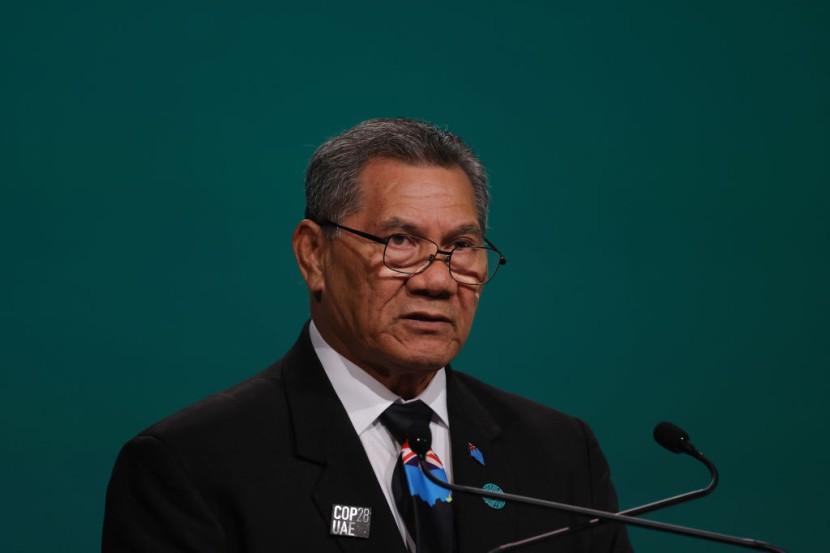Kausea Natano, the pro-Taiwan leader of the Pacific islands nation of Tuvalu, has lost his seat in a closely watched election. The outcome, eagerly anticipated by Taiwan, China, and the United States (U.S), could potentially reshape Tuvalu's foreign policy and impact the ongoing geopolitical struggle for influence in the Pacific.
Partial results from the Funafuti electorate, released on Saturday on Tuvalu TV, revealed that Natano failed to retain his seat. As of now, Natano has not made any comments about the election results.

Tuvalu, a small nation with a population of about 11,200 spread across nine islands, has been a steadfast ally of Taiwan. However, recent shifts in alliances have raised concerns, especially after Nauru severed ties with Taiwan earlier this month, opting instead for closer relations with Beijing, which promised increased development assistance.
Natano, who had been a vocal supporter of Taiwan since 1979, had pledged to continue this diplomatic allegiance.
On the other hand, Seve Paeniu, another leadership contender, has proposed a review of diplomatic ties. The new government, Paeniu suggests, should carefully consider whether Taiwan or China is better suited to meet Tuvalu's evolving needs.
Paeniu secured an uncontested victory in the Nukulaelae island electorate and expressed his intention to form a coalition among elected lawmakers to run for the position of prime minister.
Tuvalu's parliamentary structure, unique in its absence of political parties, involves the election of two MPs from each of the eight island electorates. All candidates are running as independents.
Islands with fewer than 1,500 eligible voters frequently witness razor-thin margins, with only a handful of votes determining the winners and losers in each electoral district.
Read Also : T
Taiwan, China Grapple With Diplomatic Strain
The diplomatic tension between Taiwan and China is unfolding against a broader backdrop of strategic competition between China and the U.S. for influence in the Pacific. The U.S. recently pledged the first submarine cable to connect Tuvalu to global telecommunications.
Paeniu, in an interview with Reuters on Saturday, emphasized that the crucial issue of diplomatic recognition for either Taiwan or China should be openly debated by the new government. He noted that the previous government, under Prime Minister Natano, extensively discussed the matter during their term.
Tufoua Panapa, Tuvalu's election commissioner, stated on Friday night that the new MPs would convene next week to vote for a prime minister. He explained that a clearer picture of the political landscape would emerge once elect-MPs from the outer islands reached the capital, a journey that can take up to 27 hours.
Enele Sopoaga, another leadership contender who lost his prime ministership to Natano in the 2019 election, is still awaiting results. While Sopoaga previously supported ties with Taiwan, he now advocates for the scrapping of a security deal with Australia.
This agreement grants Australia the authority to assist Tuvalu in response to natural disasters, health pandemics, and military aggression, while also providing veto power over any security-related agreements Tuvalu might seek with other nations, including China.
In the midst of these political developments, former foreign minister Simon Kofe, known for his dramatic climate change speech at the United Nations in 2021, has successfully retained his seat in the Funafuti parliament.
Related article : What Tuvalu Election Could Mean for Taiwan, China, Pacific
© 2026 HNGN, All rights reserved. Do not reproduce without permission.




